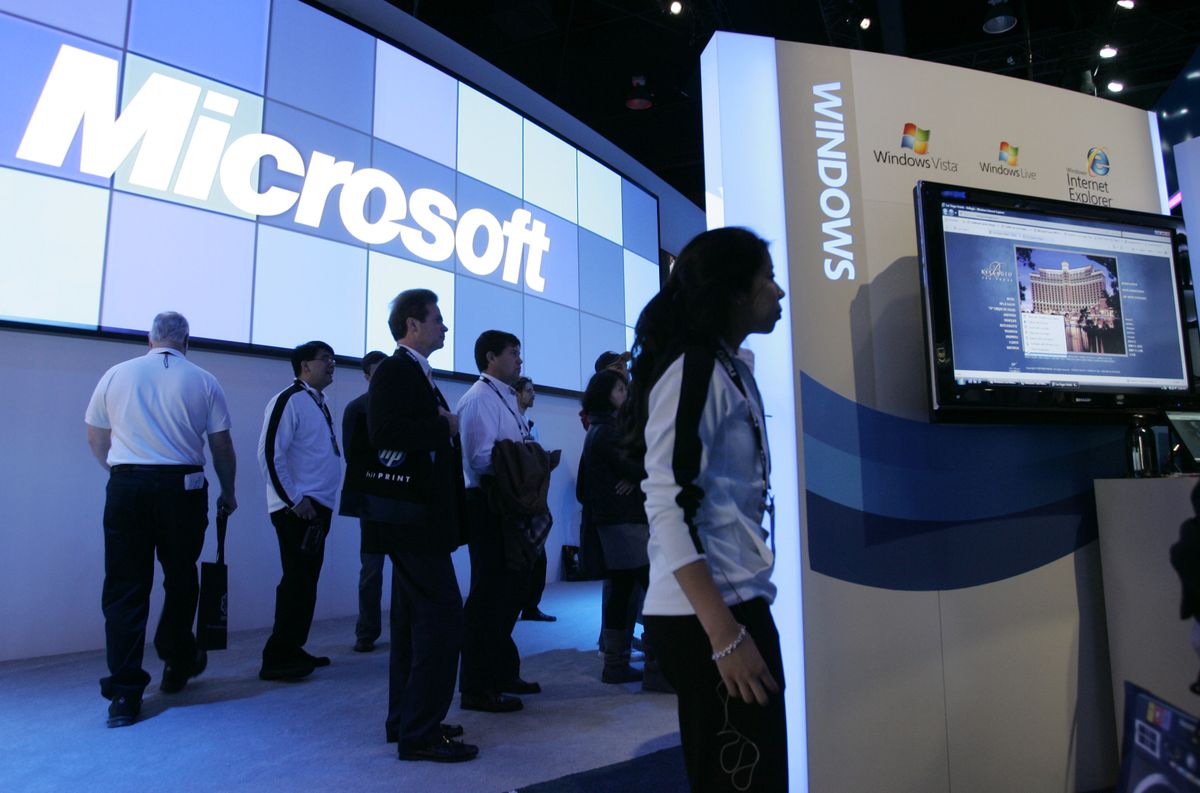Recession visits technology firms
In tough times, sales of tech items fall off

The economic recession is hurting every industry, and technology is no exception.
In an unprecedented move, Microsoft Corp. announced Thursday that it is cutting 5,000 jobs as demand for personal computers falls. They are the first mass layoffs in the company’s 34-year history.
Microsoft said its business prospects were hurt by the deteriorating global economy and lower revenue from software for PCs. The holiday quarter of 2008 was the worst for the PC market since 2002, with computer shipments declining about a half of 1 percent, according to IDC, a technology research group.
“We’re certainly in the midst of a once-in-a-lifetime set of economic conditions,” Chief Executive Steve Ballmer said during a conference call.
Other big names in technology like Intel Corp. and Dell Inc. have also had layoffs as they try to cut costs and stay competitive amid declining sales.
But the effects of the meltdown haven’t been spread evenly across the sector – even within companies, sales of certain products may fall while others are more resilient. It seems that the health of tech companies has a lot to do with what they sell, and who their customers are. “It’s definitely a mixed and complicated picture here,” Forrester Research analyst Andy Bartels said.
Here are some questions and answers about how the tech industry is weathering the financial crisis.
Q. How is this recession different for tech companies than the last one?
A. The 2001 recession stemmed in large part from the bursting of the tech industry bubble. This time, the industry has been caught up in the downturn but is not a major cause – areas like housing and banking are taking much of the blame.Another difference: Nowadays, products like MP3 players and cell phones are more integrated than ever into consumers’ everyday lives, and software and computers are increasingly intertwined with companies’ operating needs.
Q. How are companies that sell things like cell phones and computers being affected thus far?
A. Retail sales, both on and off the Web, have been slowing as consumers put off buying new things – electronics included. According to The NPD Group, U.S. holiday sales of electronics and computers dropped 5.7 percent compared with last year.
This drop-off in spending hurt companies from Intel, which is seeing less demand for its computer chips as PC sales drop, to Nokia Corp., which said the number of cell phones it shipped during the fourth quarter dropped 15 percent from the year-ago quarter. Bartels said that hardware companies – particularly PC and server makers – are generally doing badly because businesses see their products as expenses they can hold off on while times are tough.
He thinks cell phones could sell better than PCs simply because they are cheaper.
Q. What about companies that sell a lot of products and services to other businesses?
A. A lot of companies are taking a closer look at how much they spend to upgrade computers and software.
But while they may be copying consumers by holding off on PC purchases, deals for software and services are often set in stone because of prenegotiated annual contracts.
Bartels said that software sales – 90 percent of which are to businesses – are “holding up relatively well” thus far.
Tech companies that depend heavily on selling online ads – like Yahoo Inc. and Google Inc. – aren’t immune to the downturn, but online advertising did hold up in comparison to the rest of the hard-hit ad market. In the fourth quarter, Google’s revenue growth fell below 30 percent from the previous year for the first time – but these days, a lot of companies would be thrilled to have any revenue growth.
Q. So are any other tech companies doing well?
A. Indeed, several companies are managing to report growth despite the recession. Apple Inc. is one of them: In its most recent quarter, earnings were buoyed by a record 22.7 million iPod sales, as well as increased sales of Macintosh computers and iPhones. “Maybe it’s brand cachet, maybe the quality of the products it offers allows it to stand above the rest of the crowd and allows it to do a little bit better,” Bartels said.
Q. How could the recession affect how much I pay for gadgets at my local Best Buy?
A. Next time you go to an electronics store, you may spot some deals for laptops or flat-screen TV sets. Rob Enderle, an analyst for the Enderle Group, said prices on all sorts of consumer electronics have been falling since late in 2008 – and he expects them to keep falling through the first half of this year.
Q. How long will the bad times for the industry last?
A. Enderle thinks that the economy will recover in the second half of 2010 – and he has an idea about which industry is likely to lead the way. “The first indication of a broad recovery will probably come from tech – maybe not consumer electronics in specific, but the tech companies should lead out,” he said.